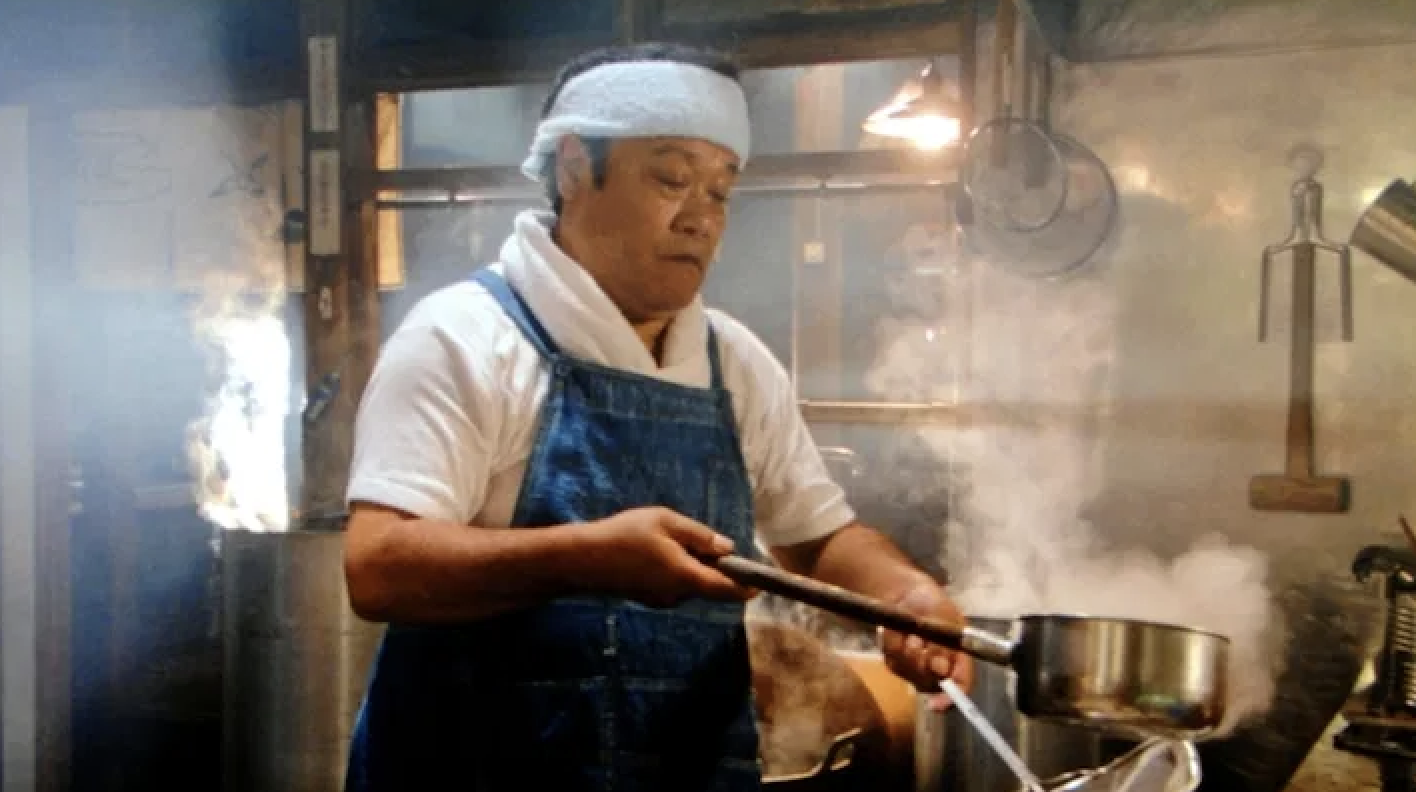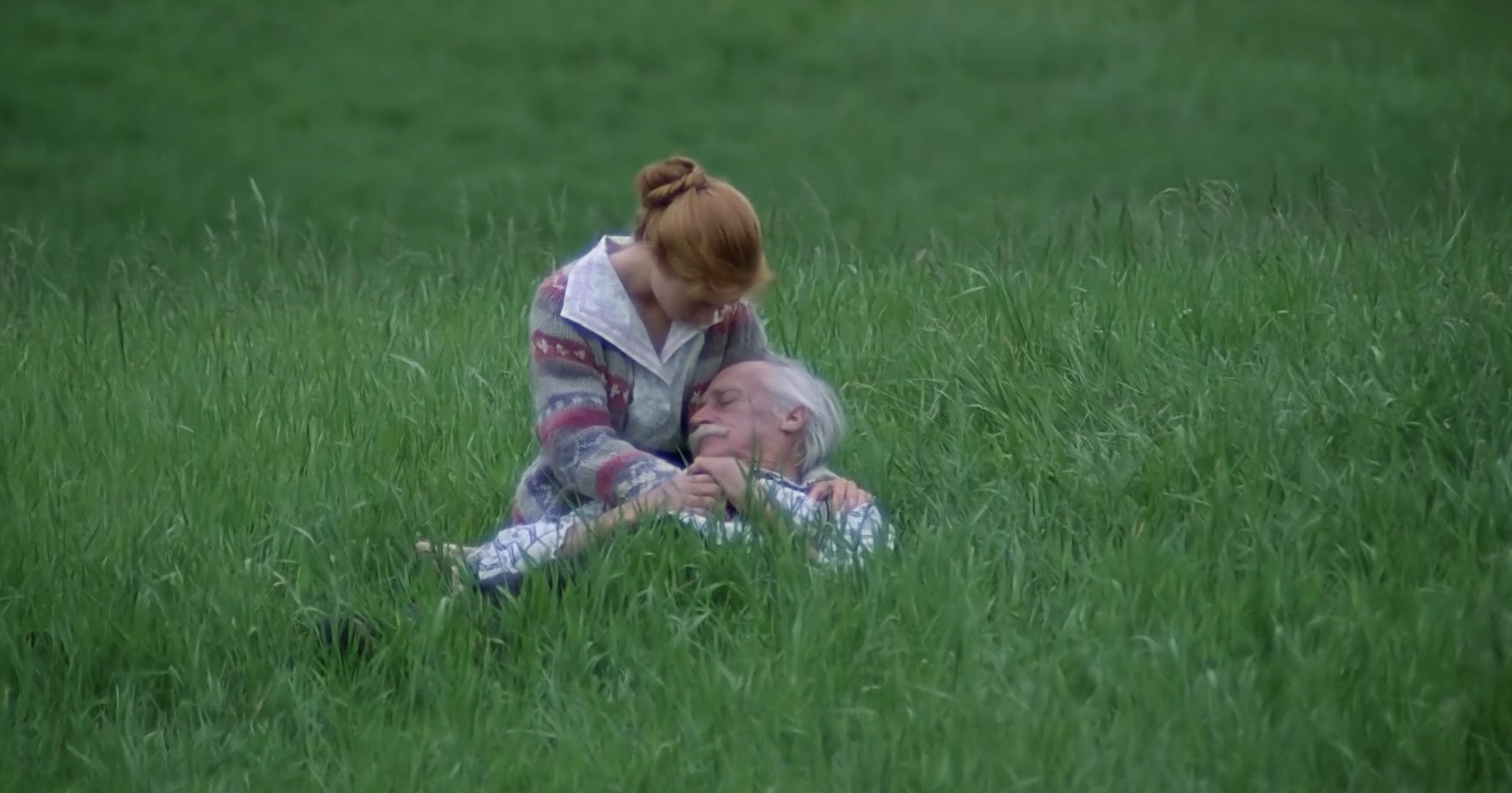Philosophy of Food and The Ramen Girl
The 2008 romantic-comedy/drama film The Ramen Girl, starring the now-deceased Brittany Murphy, provides several lenses into the philosophy of food, from our human relationship with food to the role food plays in our relationships with each other, with nature, and ultimately with ourselves.
The one-sentence plot summary of The Ramen Girl doesn’t do justice to the philosophical complexity and substance of this otherwise lighthearted film:
An American woman is stranded in Tokyo after breaking up with her boyfriend. Searching for direction in life, she trains to be a ramen chef under a tyrannical Japanese master. (IMDB)
The Healing/Transformative Power of Food
One of the clearest themes in The Ramen Girl is the healing and transformative power of food. The main character, Abby (Brittany Murphy), is despondent after being dumped and abandoned in Tokyo by her boyfriend when she stumbles upon a ramen shop across the street from her apartment. Inside the ramen shop Abby is struck by the power of ramen to lift the spirits of seemingly every customer who walks in the door, no matter how sad, exhausted, or in poor spirits he or she might have been. In a memorable scene, Abby and a particularly exhausted Japanese salary man burst out into mutual laughter at this transformative power of ramen.
As the German philosopher Friedrich Nietzsche often reminded us—a notion that somehow strikes philosophers as novel but is completely obvious to biologists, anatomists, and nutritionists—humans are biological beings with physical bodies that have their own needs, drives, and desires for the proper holistic functioning of the human person. When our bodies are well-fed, our minds work better and our spirits are lifted. And as my own grandfather—an American B-24 World War II bomber pilot turned schoolteacher and administrator—once said, you have to put the right kind of the fuel in the tank for the engine of your body, and hence your mind, to function properly and to get moving.
Despite certain forced Cartesian philosophical worries about mind-body dualism, the radical distinction between the human mind and body or the human mind and soul, Abby’s experience of having her spirits lifted by her first sip from a bowl of piping hot ramen has been experienced by almost everyone who has had their spirits lifted by the first bite of his or her favorite comfort food—ramen for the Japanese, Ven Pongal for South Indians, and chocolate chip cookies for many Americans, each country and culture seemingly having a special relationship with its own comfort food of choice.
Personal Authenticity
In the course of The Ramen Girl, Abby decides that she wants to learn to cook ramen, to become a ramen chef as she phrases it in the film. She asks the grumpy and tyrannical owner of the ramen shop, Maezumi (Toshiyuki Nishida), to be her sensei—her teacher—and she agrees (reluctantly) be known as “Abby-san” (Abby, the student). Despite being forced to clean and clean and clean some more while sparring in English with her Japanese-speaking ramen-chef sensei, Abby slowly begins to learn to cook ramen, although not to the nearly-impossible-to-meet standards set by Maezumi.
Although Abby struggles both with the quality of her broth and in restraining herself to the traditional ramen recipe and ingredients, adding nontraditional ingredients like corn and peppers to her showcase bowl of ramen to be judged by the Grand Master of ramen toward the end of the film, Abby finds a way to incorporate her own personal vision and tastes into the traditional approach to cooking ramen handed down to her by her sensei. The end result is an interpretive blend of traditional Japanese ramen culture with Abby’s own personality and distinctiveness that could only be described as hermeneutical in nature. (Perhaps the hermeneutics of food is the next big thing in philosophy, in which both Epicurus and Nietzsche would arguably have delighted!)
Although Abby’s “Goddess Ramen,” as she calls her signature ramen creation, doesn’t win the blessing of the Grand Master of Ramen by the film’s end (a charming notion that I hope but am not optimistic is real thing), much to the consternation of her ramen sensei, Abby’s unabashed quest for personal authenticity within an acceptable tolerance range of traditional Japanese ramen culture is a powerful metaphor for the situation we all find ourselves in as individuals trying to make our way authentically in the world in light of the cultural situatedness in which we find ourselves, whether our own native cultures, the cultural contexts in which we find ourselves and weave in and out of in the course of our day-to-day lives, or in the many new places to which we may travel and journey in the course of our lifetimes.
Legacy, Continuity, and Successorship
We discover two important plot points in the course of The Ramen Girl:
It’s important for a ramen chef to have a successor and to have the blessing of the Grand Master of ramen bestowed upon that successor.
Abby’s sensei—the chef and owner of the ramen shop where Abby is receiving her training as a ramen chef—has no successor because his son has decided to pursue French cooking in Paris instead of staying in Japan to become the successor and head of a “dirty ramen shop,” as Abby’s teacher calls his own shop in an emotional conversation with Abby following her failed attempt to have her Goddess Ramen blessed by the Grand Master of ramen.
As I get older, I find myself more concerned with questions of legacy, continuity, and successorship, just as Maezumi is concerned with the question about who his successor will be, if not his son. I am not just the successor of particular philosophy instructors who shaped, molded, and crafted me into the philosopher I am today, but of the great philosophers in the history of philosophy from whom I’ve drawn the wisdom of the ages. (See my previous post about indebtedness to teachers and mentors here: Footnotes in the History of Philosophy - The Meditations of Marcus Aurelius - Book I. And see my reflections on philosophy as wisdom literature here: Philosophy as Wisdom Literature: Learning from Philosophers Instead of Proving Them Wrong.) Similarly, I constantly gaze upon my students as a teacher, a mentor, and a philosopher in search of a successor (or successors—should there be more than one), those special students to whom I can pass down the most gnostic and esoteric of philosophical wisdom and wizardry for their own benefit and for the sake of the future, for the sake of continuity and of keeping the loftiest of human ideals alive for future generations—guardians of my own legacy, the legacy of all philosophers who have come before, and of philosophy as a whole.
Just as a ramen chef must choose his or her successor wisely, at least in the fictional world of The Ramen Girl, we philosophers must choose our own successors wisely, not casting our philosophical pearls willy-nilly before the pedagogical swine we encounter in our teaching careers, but carefully and purposefully passing and handing down our ideals to those students who have made themselves ready and willing to be our successors—for it is they who will protect our legacy and keep the dreams of philosophers everywhere, from ancient times onward, and the best of who we were and what we had to teach them, alive and carried into the future.
Order and Harmony; Balance and Beauty
A bowl of ramen must have order and harmony, balance and beauty. Certainly the notions of balance most relevant to Abby’s training as a ramen chef in Japanese ramen culture are the buddhist notions of harmony and symbiosis with nature, a notion paralleled in the Western tradition by the ancient stoics’ emphasis on harmony with nature, or what they called the “cosmos.” A bowl of ramen must have the proper proportions of complementary ingredients, broth that is neither excessively or deficiently salty and has been neither over- or undercooked, such that a bowl of ramen represent the highest degree of order, harmony, and multi sensory aesthetic beauty as a microcosm of the universe and the natural order of things themselves.
How many of us live lives that are truly balanced, Nietzsche’s dual critique of buddhism and stoicism aside? At the beginning of The Ramen Girl, Abby’s life is hopelessly out of balanced and she is in a state of emotional turmoil. Only by creating a microcosm of order, harmony, and balance, in the form of a bowl of ramen, is she successful at restoring harmony and balance to her own life? There is an important lesson to be learned from this about the importance of creating order, harmony, balance, and beauty with your own hands. Each expression of these qualities that you produce or create externally thereby produces and creates those same qualities within you as well. Thus any creative act is ipso facto a form of meditation, a sacrament, a spiritually transforming act that has both external and internal manifestations rivaling the grandest of religious conversion experiences.
The exact form and manifestation of this harmony and balance are unimportant: Ramen chefs find and create harmony and balance in their bowls of ramen, musicians find and create harmony and balance in their music, model railroaders find and create harmony and balance in their model train layouts, computer programmers find harmony and balance in a beautifully functioning computer program just as we logicians find and create harmony and balance in a well-structured and elegant logic proof or a theoretical physicist finds and creates order in his or quest for a grand unified theory of physics.
This same quest for order, harmony, beauty, and balance is repeated in nearly every sphere of human influence and creation—from true statesmanship in government to the aesthetics of architecture and landscaping to the harmonious arrangement of words by the novelist or essayist. Humans crave harmony and balance, and yet we become unbalanced and disharmonious so very easy in the tumult and chaos of our day-to-day lives.
Spirit
Just as ramen must have balance and harmony, it must be made with spirit, not just with the head but with the heart, a gift from you to your customer that in turn becomes a part of their bodies, and hence a part of their minds and souls if we toss out the dualist distinction between body and mind, or body and soul. The Ramen Girl seems to imply that the very same actions, the same proportions of ingredients when cooking ramen, can be done with or without spirit, but that those actions lacking spirit are deficient in some way that is noticeable to the trained ramen chef and to the consumer of ramen alike.
You cannot cook ramen merely from the recipe book; you must put your heart, soul, emotions, and even your tears into your ramen, just as Abby is advised to and literally does in the course of her inevitable emotional release from the burdens she has been carrying. The tears in her practice bowls of ramen subsequently cause tears and an emotional release in her four test customers who sample her practice ramen for the first time. While Maezumi had previously chastised her for cooking without spirit, Abby had learned how to channel her inner self, hear heart, her soul, and her deepest emotions—her spirit—into her ramen, an effect magnified by her own variation on traditional Japanese ramen, her Goddess Ramen described above.
Abby’s ramen, while perhaps not living up to the standards of the Grand Master, who admonishes her lack of restraint, is actually harmonious with her own spirit, clearly also with the spirit of her test customers, and eventually with the spirits of the customers of her very own ramen shop, called “The Ramen Girl,” back home in the United States in the film’s final scene.
Abby the Existentialist
Finally, The Ramen Girl is a broadly existentialist film in which the main character, Abby, is forced to reinvent herself after her entire former world had come crumbling to pieces. Her boyfriend left her stranded in foreign country with an alien culture and with no family nearby, despite the presence of two Westerner friends who are little more than two-dimensional caricatures who have embraced the nihilism inherent to the most absurd elements of modern Japanese culture, as opposed to Abby’s more-genuine struggle and quest for real authenticity. Abby has been done with college for four years but still doesn't know what to do with her degree or what her purpose in life is, a state of affairs familiar to all too many college graduates in these pragmatic times, symbolized in the film by Abby’s new Japanese love-interest, a musician-turned-company-man who has all but given up on his own dreams and authenticity until his life-changing encounter with Abby, culminating at his reappearance at the end of the film, again restoring harmony to Abby’s life as much as her ramen itself.
Abby is forced to reinvent herself, as we all are after the rug has been pulled out from under our lives and feet, when our hopes and dreams have led to disappointments, or when the external world has forced change upon us, willingly or unwillingly. The reinvention of one’s life need not be grand in scope. Abby finds herself in a little ramen shop across the street, just as I once found myself in a little downtown coffee shop in my hometown (a story for another time) and as in the many ways I’ve had to reinvent my own life both personally and professionally over the years. Sometimes all it takes is a bowl of ramen to be the existential catalyst for change—the spark the lights the fire beneath the stock pot of your life, awakening you to new possibilities beyond those of your wildest dreams.















